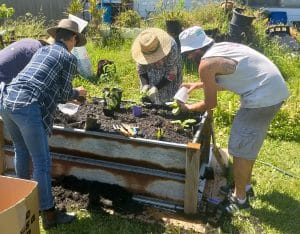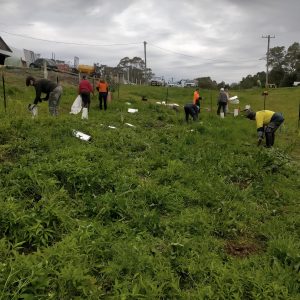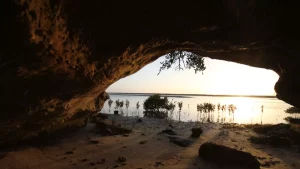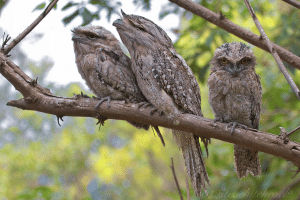Weedy Warnings- Ochna serrulata (Micky Mouse Plant)
Ochna serrulata, commonly known as Micky Mouse Plant for its fruit’s slight resemblance to Micky Mouse’s face, is a hardy and determined woody weed that bush regenerators are well acquainted with.
It is a significant environmental weed in Queensland and New South Wales and a potential environmental weed, a “sleeper weed” in other parts of Australia. Ochna is not fussy with the vegetation type it will grow in, including rainforest and sclerophyll forests, cleared paddocks, road reserves, along creeks and river banks and I’ve even seen a large one camouflaged in a lilly pilly hedge that was meticulously pruned.
Ochnas identifying features are-
– The woody branches are covered in small bumps called lenticels (anchor to plant nerd words).
– Dark green, opposite finely toothed leaves on short stalks that can appear wavy.
– New flushes of young leaves have a bronze, reddish tinge.
– Yellow, 5 petaled flowers up to 3 cm wide, often present in spring.
– A unique looking fruit, starting off green then ripening to black.
Once spread, they are an extremely hardy plant that can be challenging to kill, due to a deep, kinked taproot, which can be easily broken when hand pulled, and easily re-establish if cut and not scraped enough, coming back with a new vengeance for life and newfound inspiration to become a multi-stemmed beast.
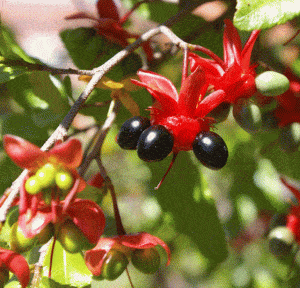
Fruits of Ochna, that somewhat resemble Micky Mouse. Image: MidCoast Council
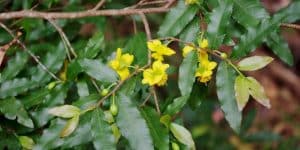
Leafs and flowers of Ochna. Image: Weeds Australia
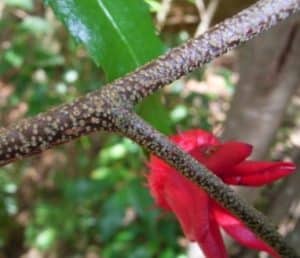
Ochna lenticels Image: IEWF
Control using chemical-
– For Ochna up to waist high, no fatter than a fat thumb, you can scrape and paint with Glyphosate 360 at a rate of 1 part chemical to 1 part water (1:1). Ensure that you excavate a good few inches along the tap root to where it starts to turn a yellow, pink. Scrape lightly, up to the leaves on each side and apply chemical quickly.
– Larger Ochna can be drilled and filled with Glyphosate mixed 1:1 at the base of the plant. Drill holes around the base with a 10mm drill bit and fill quickly.
– Ochna can controlled using the cut stump method but I have found they can stay dormant for years, before they surprise you with their vengeance. So carefully, on an ochna with a thick stem, cut the plant as low to the ground as possible, and lightly scrap along the tap root, before applying 1:1 Glyphosate quickly.
– Tiny Ochna can be spot sprayed with 1:100 Glyphosate.
Fireball 400 (Fluroxypyr) also works very well on Ochna (read directions).
To control Ochna chemical free-
The root must be removed, excavated, removing the whole plant.
As with any weed control, follow up is imperative. Bag the fruits to prevent spread of seed.


